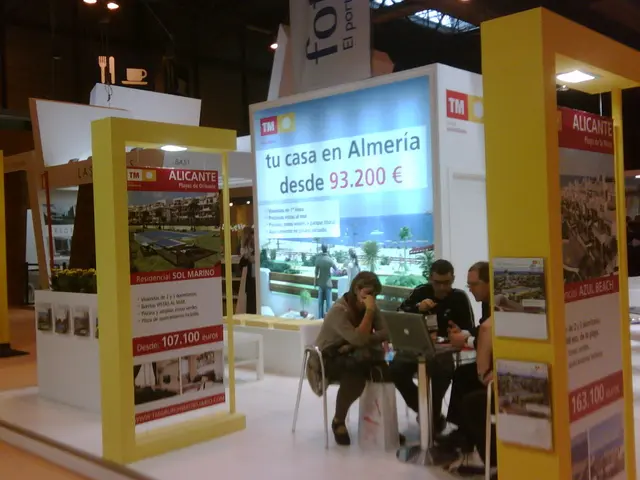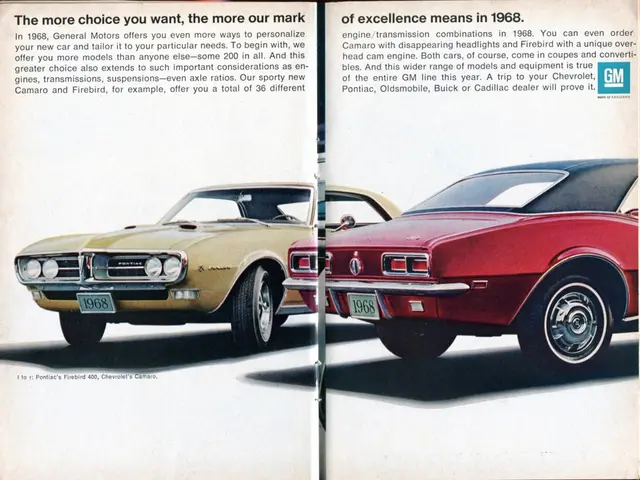Indonesia ought to embrace electric vehicles, learn from China's faltered methanol endeavor, as suggested by industry experts.
Real Talk about EVs vs Methanol in Indonesia
Hey there! Let's dive into the debate surrounding electric vehicles (EVs) vs a methanol production facility in Indonesia. Energy finance specialists argue that Indonesia might want to reconsider its plans for a costly methanol production facility in light of previous failures in China, and instead opt for EVs.
While methanol-blended fuel could lower emissions and boost performance, this advantage could be undermined by the lower energy content and increased material corrosion, as energy finance experts explain, citing concerns raised in a 2021 white paper by the International Council on Clean Transportation. Turns out, EVs might be a more sustainable choice instead.
Ghee Peh, an Asia-based specialist from a non-profit institute, went on record stating, "Expanding the use of EVs, particularly motorcycles, offers a lower-risk, less complex, and more cost-effective solution than blending methanol." Neighboring countries like Vietnam have already developed EV charging networks, proving the feasibility of this strategy.
Indonesia is currently constructing a US$1.2 billion coal-based methanol plant in East Java, with the goal of boosting biodiesel output and completion set for 2027, according to the institute. Indonesia currently faces a 2 million tonne annual deficit in methanol output, and the details about the plant's gas source remain unclear.
Now, let's take a closer look at some advantages and potential risks of embracing EVs in Indonesia:
Advantages: - Environmentally Friendly: EVs offer a cleaner alternative, reducing emissions and promoting a more sustainable environment – a goal Indonesia aims to achieve[1]. - Cost-Effective: Investment in EV infrastructure appears to be less complex and expensive than methanol production[1][2]. - Energy Efficiency: EVs convert about 60% to 70% of electrical energy from the grid to power the wheels, significantly higher than methanol[1].
Potential Risks: - Infrastructure Challenges: Developing charging infrastructure for widespread EV adoption could require substantial upfront investment[1]. - Energy Source Dependency: Shifting the focus to electric vehicles increases the dependency on electricity, which is often generated from fossil fuels in Indonesia[1]. - Technological and Market Risks: Transitioning to EVs requires technological advancements and market acceptance, but the timing and success rate of these developments are unpredictable[1]. - Methanol Deficit: Completely abandoning methanol production could exacerbate Indonesia's current methanol deficit if alternative energy sources are not adequately developed[1].
In conclusion, while EVs could present opportunities for environmental and economic benefits, careful planning is necessary to avoid issues like infrastructure investment and energy source dependency[1]. The key lies in investing in renewable energy sources to minimize the reliance on fossil fuels for powering EVs.
Peace out, and remember: go green or go home! 💚💪
[1] Includes insights from enrichment data.
- The debate over electric vehicles (EVs) versus a methanol production facility in Indonesia is gaining attention, with some finance specialists advocating for EVs due to previous issues with methanol production in China.
- While methanol-blended fuel can lower emissions and boost performance, energy finance experts caution that it may face challenges, such as lower energy content and increased material corrosion.
- Ghee Peh, an Asia-based specialist, supports expanding the use of EVs, particularly motorcycles, as a lower-risk, cost-effective solution compared to methanol. Countries like Vietnam have already developed EV charging networks.
- Indonesia is constructing a US$1.2 billion coal-based methanol plant in East Java, intended to boost biodiesel output and scheduled for completion in 2027. However, the plant's gas source remains unclear, and Indonesia faces a 2 million tonne annual deficit in methanol output.
- Analysing the advantages of EVs in Indonesia, they offer an environmentally friendly alternative, are cost-effective, and are energy efficient. Important potential risks include infrastructure challenges, energy source dependency, technological and market risks, and the potential exacerbation of the current methanol deficit if alternative sources are not developed.
- To avoid issues and maximize benefits, it is essential for Indonesia to consider the strategic investment in renewable energy sources to power EVs and minimize reliance on fossil fuels. Politics and policy-and-legislation will play crucial roles in the general news regarding this topic.








